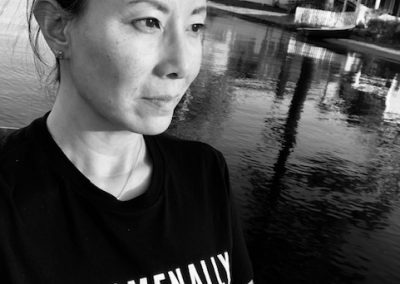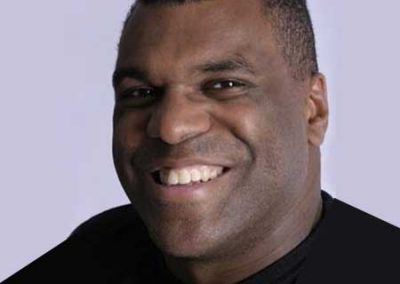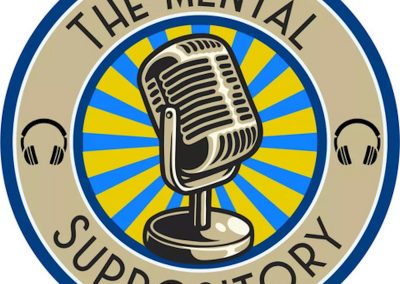Wabi Sabi Notebook III
photo courtesy of Scott M. Graves

Joshua Michael Stewart is a poet and musician who has had poems published in the Massachusetts Review, Salamander, Plainsongs, Brilliant Corners, and many others.
His books are, Break Every String, (Hedgerow Books, 2016) and, The Bastard Children of Dharma Bums, (Human Error Publishing, 2020).
His albums, Three Meditations, and Ghost in the Room, can be found on Apple Music, Spotify, Amazon, and many other platforms. Visit his web site at www.joshuamichaelstewart.com, or better yet, interact with him at www.facebook.com/joshua.m.stewart.526/.
For this column Joshua will explore poetry, music, and Buddhism, and how they all intersect with each other. He will delve into assorted poetic forms and he will specifically highlight contemporary poets from the New England area, and the poets associated with classical Japanese and Chinese poetry.
THE WABI-SABI NOTEBOOK (PART THREE)
Here is my third and final (for now) installment of the Wabi-Sabi Notebook. I will continue to keep adding to this project and hopefully I can share more with you later. Until then I hope you find this third installment useful.
“Pain is inevitable, suffering is not.” –Bhante Henepola Gunaratana
Restlessness is often a cover-up for some deeper experience taking place in your unconscious.
If you get frustrated and discouraged with meditation it is because of unrealistic expectations.
In Buddhist psychology there is no good or bad thoughts, just skilled and unskilled thoughts.
Unskilled: greed, hatred, delusion, etc. –these thoughts build obsessions and lead away from true liberation. (very ‘me’ oriented)
Skilled: compassion, wisdom, mindfulness, etc. –thoughts used to counteract unskilled thoughts and lead to liberation.
Hindrances during meditation: desire, lethargy, aversion, agitation, doubt. Hindrances are primarily manifestations of the ego process itself. The ego is a feeling of separation–a perception of distance between what we call ‘me’ and what we call ‘other.’
I never thought of myself having a big ego, but I do. I am always trying to distance myself from others. My whole life I have always thought that the worst thing that could ever happen is to be ordinary, that being like everyone else is the worst of fates. I don’t think of myself as better as everybody else, I just want to be better than everyone else–that is my entire reason to become an artist to prove to the world that I matter. I have a big ego, but I also have low self-esteem. As I stated earlier, I need to learn to be humble, not false modesty, but truly learn to be humble.
Ego: the ‘I’ that you think you are.
Greed and lust relate to the ego, they are attempts to “get me some of that.” Hatred and aversions are attempts to put greater distance between self and others.
Mindfulness reminds us of what we’re supposed to be doing. It sees things as they are.
You reach mindfulness by being mindful.
THE THREE DEEPEST TRUTHS OF EXISTENCE
- Impermanence
- Unsatisfactoriness
- Selflessness (absence of unchanging entity)
All things are transitory, all worldly things are unsatisfying. There are no entities that are unchanging or permanent, only processes. There is no self to be had. You do not exist.
Suffering inevitably follows in the wake of clinging. Life is marked with disappointment and frustration, and they rise out of your inability to get what you want, and /or the fear of losing what you have, and never being satisfied with what you have.
There comes a point in meditation when one becomes aware of the three truths of existence: everything dies, suffering is a part of the human experience, and finally, the no-self.
Think kind thoughts about everyone (and thing) you come in contact with. When you see someone, consider that, like you, that person wants happiness and wants to avoid suffering. Even insects recoil from harm. We are all connected.
Wabi-sabi expresses the beauty that lies in the brief transition between the coming and going of life, both the joy and melancholy that makes up our lot as humans.
If an object can bring about within us a sense of serene melancholy and spiritual longing, then that object is said to be wabi-sabi.
To be one with the Tao, one must practice wu-wei, and refrain from forcing anything to happen that does not happen of its own accord.
By losing the concept of self, or in freudian terms, the ego, the world takes on a new dimension where True Art and creativity can begin.
The dedicated zen monks, in a spirit of quiet and resolute determination, sought to find artistic expression in all that they did, and this art was the fruit from their very focused minds.
Hakuin (Zen Buddhist monk) thought that meditation in the midst of activity (think walking meditation) was far better than meditation in stillness.
We live under the illusion that the world is dualistic. This illusion causes people to cling to ideas of themselves and the world that leads to suffering.
Life is evanescent but overcoming the fear of death is vital for the fulfillment of life.
Through meditation and great effort, it is possible to break the chain of our perceptions and to realize the true nature of our reality. In doing so it releases us from our suffering.
When we realize we are nothing but energy particles (fire, water, earth, wind, energy) coming together and falling apart, we stop being so zealous about the ‘me.’ we’re so busy protecting.
Furyu monji: not standing on words or letters.
Muga: no-self.
One could say living a wabi-sabi life is living unselfishly, without desire of profit, resisting an idea of self-importance, or status, and humbly accepting your position in life.
Wabi-sabi is an aesthetic that comes naturally from this attitude. (to write wabi-sabi one must be wabi-sabi.)
“Those who do not know speak, those who know speak not.” –Zen proverb
“If we have no time for introspection we are hardly likely to make change. If we create hustle & bustle for ourselves without having time for meditation we cannot attain peacefulness.
Frugality is a virtue. Be satisfied with little. There’s always a bigger TV, a better house, no end to them. To use our life to attain material things is a waste of time, a waste of a good human life.
Insight into the constant flux and flow in life, including ourselves, brings the understanding that there is nothing in this world worth keeping, worth holding on to. This understanding is threatening to our ego concept because the ‘I’ wants to be the center of the universe, and there is a happiness that comes from letting go of all that, a happiness embedded in acceptance and peacefulness. Nothing needs to be accomplished, achieved, or changed. All is as it is. “ –Ayya Khema
A mind that knows Absolute Truth is a mind that doesn’t have to hang on anything, attached to anything, doesn’t have to become anything. It does what it needs to do in the moment and then lets go. Diminishing the ego leads to no-self. Diminishing hate and greed diminishes the ego because they can only arise due to ego delusion.
I struggle with wanting to live a wabi-sabi life and being a famous artist: a struggle between “being” and “becoming.” I no longer want to focus on becoming, because it only feeds into the ego delusion. However, I can be an artist while trying not to be attached to it like the buddhist monks do. Create the art and then let it go. Don’t busy myself with the thoughts that feed into the ego delusion. I should focus on how my art can help other people or at least bring joy to people and not about how it can benefit me, or raise my status.
There’s desire in “being” (being loved, being a mother, etc) and any desire is suffering and prevents one from feeling content and peaceful. To be different from how one is, creates suffering because it’s another form of desire. To work gently to transform oneself is another matter, but desire arises from feeling a lack of something, and that is painful, and we try to fix that pain with desire, but it never kills the pain.
Action is meaningless because the pursuit of gain leads us to become more convinced of our own inadequacy or imperfection of the world as it is.
“Nothing can be expressed about solitude that has not already been said better by the wind in the pines.” –Thomas Merton
“Solitude increased my perception, but when I applied this new perception to myself I lost my identity. There was no audience, no one to perform for. There was no need to define myself. I became irrelevant.” –Christopher Knight
ART, NOT ARTIFICE
“The more you realize, the more you realize there is nothing to realize. The idea that there’s somewhere we have to get to, something we have to attain, is our basic delusion.” –Tenzin Palmo
Sunyata: the suchness (is-ness) of things.
Sono-mama: just as it is (just so)
Wabi-sabi is a mindset: living modestly, being satisfied with life as is, not as we wish it to be, living in the moment.
The loose ends of our lives never get tied up, things don’t really get resolved, Things come together and they fall apart, and sometimes they come together again only to fall apart once more. We must look at the vase as if it were already broken, the flowers already wilted, and be okay with it. It is not the circumstance that causes suffering, but what we tell ourselves about those circumstances.
Serenity comes from trading expectation with acceptance.
Cultivating acceptance means to slowly learn to let go–let go of the need to control, letting go of wishing life was different than what it is. When we cling to the idea that life should be as we wish it to be we are evidencing thoughts and feelings of entitlement, Acceptance is a prerequisite for change. To modify one’s behavior one must first accept and have compassion for oneself as is. Happiness is more about letting go than what we attain.
Lao Tzu (Tao Te Ching): states that people fall in the trap of morals and rituals thinking they will lead one to “The Way” but in reality, these things derive out of a failure to understand The Way in the first place. It is like what I mentioned earlier about how often when people try to defeat evil, they themselves become evil or do evil things. By focusing on rituals and morals all you do is create a space for “other” for “hate” for “less than” for “self-loathing” and etc. Morals and rituals only feed into the ego delusion.
Lao Tzu was talking long before anyone else about getting back to the land, ideas of the slow movement, unlearning what one has learned, and returning back to a place before humans became separate from the natural world.
Lao Tzu stressed that in order to understand the Tao, one can’t learn it through traditional book learning, which may be a reason why the Tao Te Ching may be so hard to read and understand. That the book itself is a concrete way for Lao Tzu to say, “YOU’RE DOING IT WRONG, YOU IDIOT!”
“Let go or be dragged.” –Zen proverb
“After enlightenment, the laundry.” –Zen proverb.
The Tao is beyond words, but also, language itself is one human resource that habitually binds us to perspectives that narrow our range of possible experiences.
I’ve often stated that there is a freedom that comes from surrender, but now I question whether it’s surrender or awareness? I initially thought of it as giving up on hope and dreams, but is it that or is it just awareness in how things really are and accepting it?
There is natural action and there is willed action.
We, as humans, resist. We do not allow ourselves to land in a natural spot like a leaf falling from a tree. Instead we try to control the situation and the result is always Duhkha: longing, wanting, desire. It is willed action that binds us to Duhkha. A way to understand right action, is to think of it as selfless action, action by which you do not see yourself separate from other things.
“It’s becoming harder and harder for us to find meaning in our lives. We’ve seen through too many of our old stories. Religion doesn’t grip most people today as it once did. Though a lot of people mouth it, and still desperately cling to it, underneath it all “God” doesn’t seem to be the final answer for many of us.
We don’t really live as if we believe in God. Still, in desperation we swing between the twin perils of cynicism and dogmatism. We continue to run to this or that to inject meaning to our lives. We don’t easily understand that we create this problem of meaninglessness ourselves through or diluted thinking. If we could just see this moment for what it is, meaningless would never arrive in the first place. It’s in our very trying to define and arrange things for ourselves, trying to identify and assign meaning to things that we end up creating a world that is ultimately meaningless. We’ve tried this, we’ve tried that, we’ve tried the next thing and the next. We’ve become sophisticated, jaded. After all our searching, all the philosophy and science that we’ve labored on for centuries, it’s becoming very hard to find a story we can buy.
The Deep, hollow ache of the heart arises from a life in search of meaning, but it’s by our very desire to find meaning that we create meaninglessness, The very idea of looking for purpose and meaning arises from our dilute thoughts. When we actually see Reality for what it is, all questions of meaning are transcended and we’re free to engage the world as it actually is.”
–Steve Hagen
“Consciousness is nothing more than the splitting of Reality into this and that, Consciousness is making distinctions and drawing lines. Consciousness divides what is otherwise the direct experience of a seamless Whole into the world of multiplicity, the world of space and time. Because of consciousness, the universe appears “out there,” loaded with stuff. And, likewise, because of consciousness, “here I am,” as well.” –Steve Hagen
Relative truth: the day to day, conceptual truths, 2+2= 4, 12 inches in a foot, apples come from trees, etc. The concepts that allow us to move about in the world. They are relative, because they only exist in relationship to other things, thoughts, feelings.
Absolute Truth: direct perception–no individual thing exists. There is only the seamless flux. You can see it, but you cannot hold it in your mind. It is direct experience itself.
When we come up with a concept we also come up with an oppositional concept. Each relative truth engenders opposite relative truths. When you define something as “good” you automatically make a concept for “bad / evil.” Then when we take these opposing concepts as reality, they will inevitably cause misery.
Those who are awake to Absolute Truth still see objects and their forms, but they see these forms as illusory, they see that all things rise together, that all things are connected to all others and that dependence is nothing other than change and motion. The Buddha called this “Dependent Arising.”
“There isn’t anything ‘out there’ that ultimately satisfies. There isn’t anything ‘out there’ that we must acquire or repel. In fact, there isn’t any ‘out there’ at all, nothing enters or leaves the mind.”
–Steve Hagen
Hanami: Viewing the flowers.
Yozakura: Night Cherry Blossoms
Memento mori: remember that you will die
Meta-emotion: what we feel about what we felt.
Something bad happens which causes pain, but after the misfortune’s initial impact, we tend to brood over what happened. Thus, feeding the initial pain that more than likely would have faded away by now and only causing more pain.
Bad things happen, or as the saying goes, “Shit happens,” and there is little if anything one can do to prevent every hardship, but once we’ve been cut, we don’t have to twist the blade, we don’t have to pick the scab. We can control how we react to these bad things. This is what Buddha meant when he said, “pain is inevitable, suffering is optional.”
Happiness lies in wanting nothing outside ourselves, and in appreciating what life has to offer us while it lasts. Happiness is more about letting go than what we attain.
“We must see that it is not happiness that makes us grateful, but gratitude that makes us happy.” –Brother David SteindlRast.
Kintsugi teaches us the beauty of imperfection. Leaving our emotional wounds exposed like a broken cup causes unnecessary suffering. But we can recover using what we have learned from our misfortunes and failures. Our scars will tell our stories like the golden lacquer of kintsugi.
I can feel things slowly change within me now that I’m in the process of accepting my station in life–trying to be grateful for what I have, and not obsessing so much about my writing or music. I still love creating art, and I want to do it every day, but I’m trying to focus on the moment of creation and not on the outcome, the publication, and whether people are listening to my music, or buying my work or liking it on Facebook. I’m daydreaming less about how my work will lift up to some other kind of “status” which has been something that has controlled my life and every decision I have made for at least 40 years. I’m learning to live a new way, but it’s not perfect, sometimes I still fall into old traps, and the truth is, I love the competition with myself. But I am learning, and with that learning the stress I put on myself is fading. The idea that I must put this # of hours a day into my writing/music practice so I can one day be a famous artist is withering away. Again, I still love the art and I want to do it now more than ever, I’m just not stressing on the outcome. I’m slowly getting to the point where all I want to do is focus on mindfulness. There is nowhere to go and no one to become. I’m walking a path in search of no-self. I’m learning to disappear.
“Meditation is not some special posture, it is not a set of mental exercises, meditation is the cultivation of mindfulness and the application of mindfulness once it is cultivated.”
–Bhante Henepola Gunaratana
THINGS TO REMEMBER WHEN WRITING
- Focus on the sentence: each sentence should be its own poem. Make each sentence crips and clear. Make it interesting.
- Make the language as tight as possible
- Get rid of weasel words–words that carry no weight
- Get rid of prepositional phrases when possible
- Get rid of hollow adjectives and adverbs
- Use the most interesting and appropriate verbs.
3. There needs to be movement, there needs to be change–some kind of epiphany or discovery. Something must be learned.
4. Link the poem back to yourself even if the poem isn’t about you. Make it personal, Make it true.
5. There should always be action in each sentence (see 3). Think of that prose poem by Bly–where even the moss has movement.
In beauty may we walk,
beauty before us,
behind us, above us,
below us, with beauty
all around us may we walk.
May we walk in this circle
of beauty and know
that it is one: the trail
of tears and laughter;
the trail of war and peace.
May we always walk
in the energy of light,
the light of the Milky Way.
May we walk
in this moment’s beauty.
May we continue to dance.
It is finished in beauty.
It is finished in beauty.
It is finished in beauty.
–Navajo
****
Here are a few more books that were used to make these notes:
Also from M the Media Project
Podcasts
News Features
Video Channels
Mental Suppository Podcast
On the Rocks Politica
SMG’s ‘Are We Here Yet’?

Interested in advertising with us? Perhaps you want a unique way to support the economic development work we accomplish while getting access to our intelligent and informed listeners? Join our roster of supporters. Click that button below to find out more.









